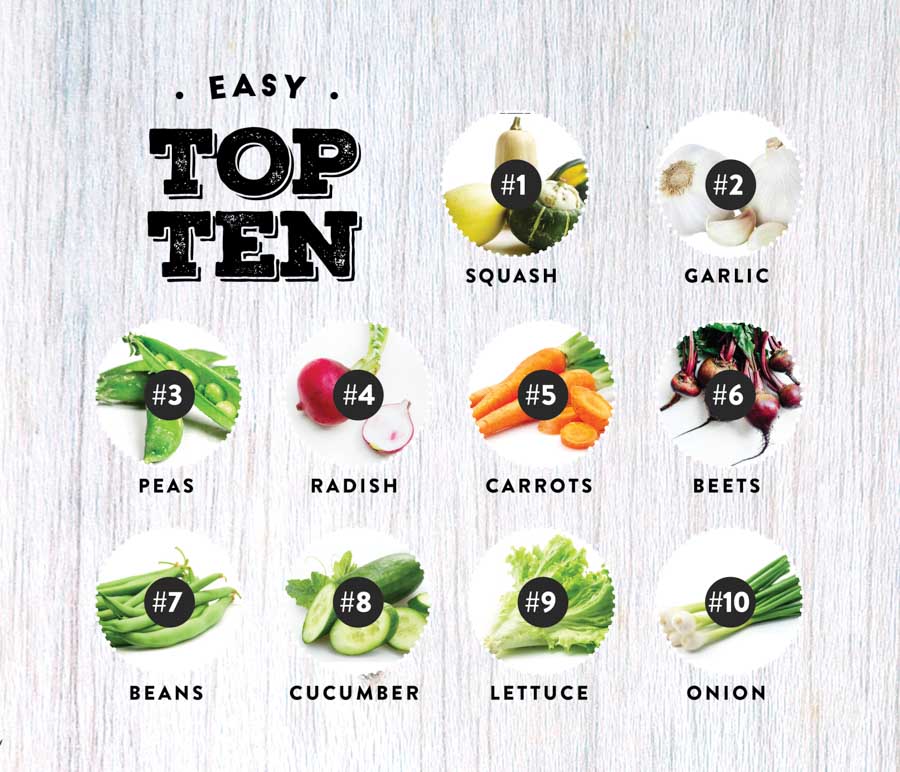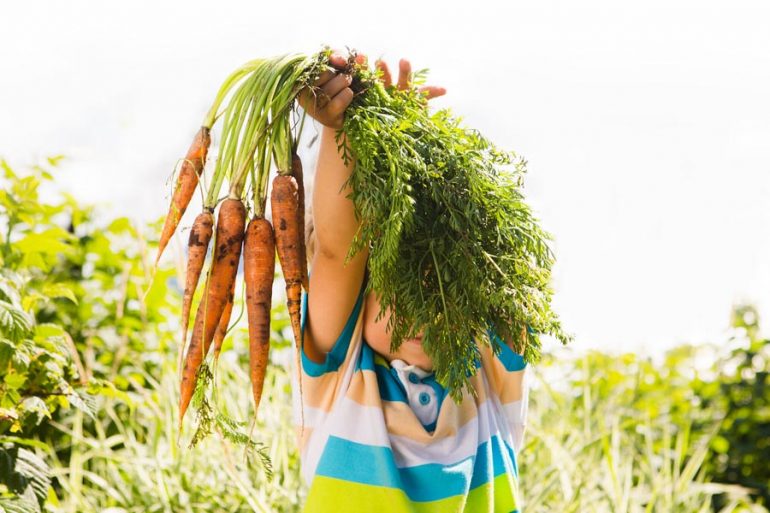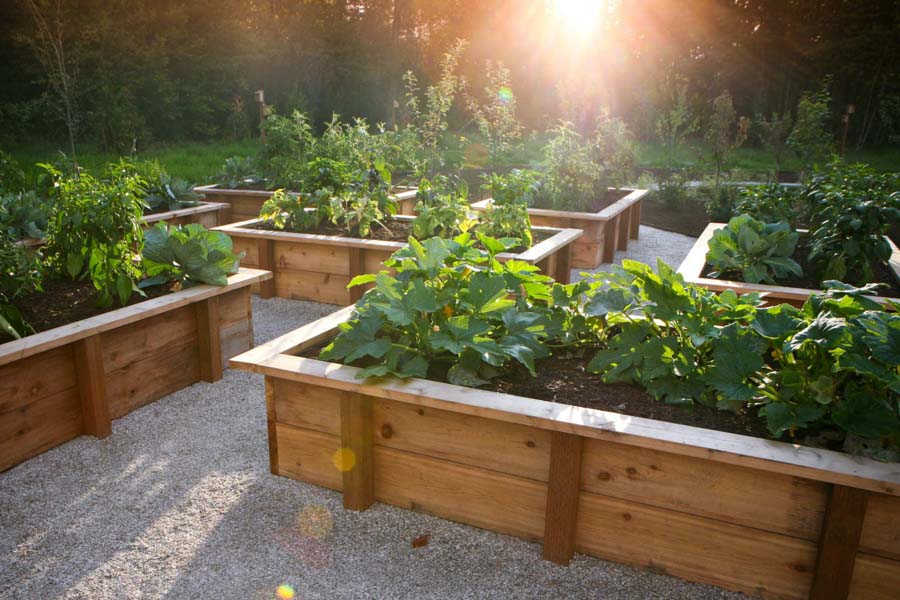In the summertime, there is nothing more satisfying than savouring a fresh slice of a juicy, ripe red tomato or biting into a cool, crisp cucumber — and it’s even more delicious when that tender vegetable was grown in your very own vegetable garden!
The simple act of nurturing a young plant to fruition is not only good for the environment, but studies show that a connection to nature is a healthy outlet for anxiety, as well as a practical exercise in self-sufficiency.
This summer, whether you’re a novice gardener or a seasoned pro, why not hone your veggie-growing skills by growing your own?
MAKE YOUR BED
Even if you don’t have a lot of time for gardening, you can still have a productive vegetable garden, no matter the size, by starting with a raised bed. It’s a shortcut to a plentiful harvest, even in the first year. The benefits are many:
- Garden anywhere! Attractive cedar raised beds are an asset to your landscape. Create perimeter gardens, spice up your entryway, grow food in your front yard, or hide an eyesore.
- You can harvest more food in less space. Set plants closer together so that every square inch is productive. Use small-space gardening techniques like succession planting and vertical supports to ensure you’re maximizing the space.
- You can plant earlier. Excess water drains better and the soil warms up faster in spring compared to in-ground beds. Specialized covers and garden fabric help you get started even earlier.
- You can use better soil. A productive vegetable garden depends on good soil. With a raised bed, you start fresh with the ideal soil blend — even if the soil in your yard is poor.
- You’ll see fewer weeds. Because raised beds are densely planted, weeds have little room to grow. And when they do find space, it’s easy to pull them from the loose, rich soil.
- Easier pest control. It’s simpler to manage insects and exclude animal pests compared to long garden rows because you can easily cover beds with row fabrics or specialized covers.
- Less bending to tend. Deep root raised beds are 15” high, so you bend less during planting, caring for, and harvesting plants.
“Always use untreated wood instead of chemically treated wood or wood ties as chemicals can leech into your vegetables,” Darla Malcolm-Hauraney, cofounder of The Garden Girls Garden Care, advises. “Cedar is the top choice for raised beds because this durable wood is naturally rot-resistant and can last 10 to 15 years. It is also insect-resistant because of oils in the wood.”
“Also, fill the bed with great soil,” she continues. “The best soil suitable for vegetables includes 50% high-quality topsoil and 30% high-quality homemade or certified compost and 20% organic matter such as composted leaves, vermicompost (worm castings), mushroom compost, mineralized soil blend, ground bark, composted cow or poultry manure, and peat moss.”

TRY SOMETHING NEW
Time to decide what to plant! Fill your garden with the types of vegetables you like to eat, keeping in mind it’s getting late in the season to plant fruiting vegetables like tomatoes. But if your family loves salad, plant head lettuce, a lettuce cutting mix, cucumbers, and carrots. If you love to cook, plant onions and peppers, leeks, potatoes, and herbs. Try to include at least one vegetable that’s new to you! See our handy list of Easy Top Ten Vegetables.
“After you’ve chosen which veggies you want to grow, research planting dates for your location, your site conditions, your soil conditions, spacing for the size planned, and fertilizer needs,” Darla suggests. “Try to select plants and varieties that are well adapted to environmental conditions in your area, as these are likely to be more vigorous and better able to withstand attack by pests.”
Local Links
The Garden Girls, Mississauga || thegardengirls.ca
Van Beek’s Landscape Supply, Oakville / Mississauga || vanbeeks.com
Sheridan Nurseries, Mississauga || sheridannurseries.com
Bulow Garden & Landscaping, Oakville / Mississauga || Bulow-Gardens-Oakville
Terra Greenhouses, Burlington || terragreenhouses.com
Connon Nurseries, Waterdown || connon.ca
By Kristy Elik






